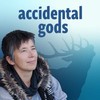
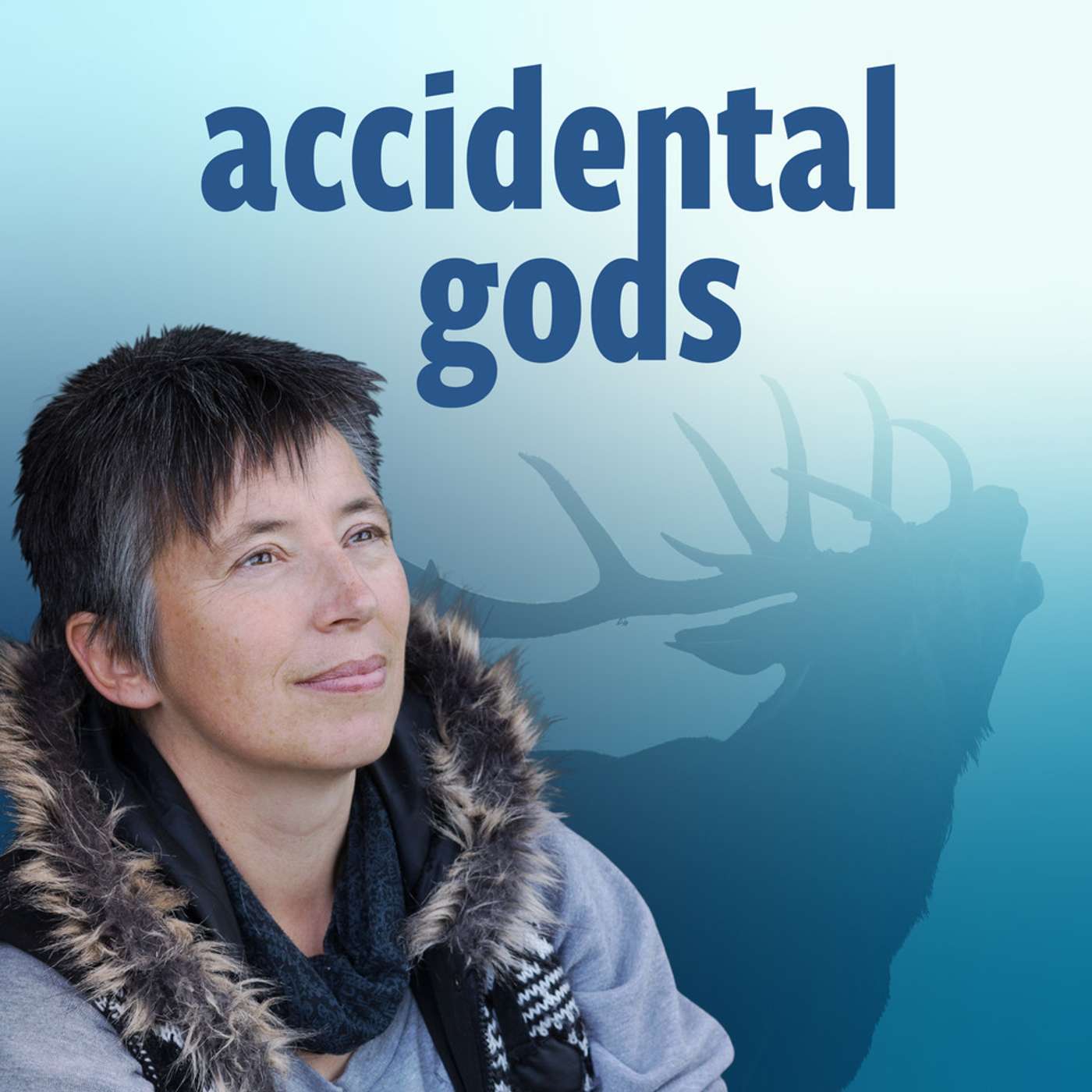
Accidental Gods
Accidental Gods
Another World is still Possible. The old system was never fit for purpose and now it has gone- and it's never coming back.
We have the power of gods to destroy our home. But we also have the chance to become something we cannot yet imagine,
and by doing so, lay the foundations for a future we would be proud to leave to the generations yet unborn.
What happens if we commit to a world based on generative values: compassion, courage, integrity?
What happens if we let go of the race for meaningless money and commit instead to the things that matter: clean air, clean water, clean soil - and clean, clear, courageous connections between all parts of ourselves (so we have to do the inner work of healing individually and collectively), between ourselves and each other (so we have to do the outer work of relearning how to build generative communities) and between ourselves and the Web of Life (so we have to reclaim our birthright as conscious nodes in the web of life)?
We can do this - and every week on Accidental Gods we speak with the people who are living this world into being. We have all the answers, we just (so far) lack the visions and collective will to weave them into a future that works. We can make this happen. We will. Join us.
Accidental Gods is a podcast and membership program devoted to exploring the ways we can create a future that we would be proud to leave to the generations yet to come.
If we're going to emerge into a just, equitable - and above all regenerative - future, we need to get to know the people who are already living, working, thinking and believing at the leading edge of inter-becoming transformation.
Accidental Gods exists to bring these voices to the world so that we can work together to lay the foundations of a world we'd be proud to leave to the generations that come after us.
We have the choice now - we can choose to transform…or we can face the chaos of a failing system.
Our Choice. Our Chance. Our Future.
Find the membership and the podcast pages here: https://accidentalgods.life
Find Manda's Thrutopian novel, Any Human Power here: https://mandascott.co.uk
Find Manda on BlueSky @mandascott.bsky.social
On LinkedIn https://www.linkedin.com/in/mandascottauthor/
On FaceBook https://www.facebook.com/MandaScottAuthor
We have the power of gods to destroy our home. But we also have the chance to become something we cannot yet imagine,
and by doing so, lay the foundations for a future we would be proud to leave to the generations yet unborn.
What happens if we commit to a world based on generative values: compassion, courage, integrity?
What happens if we let go of the race for meaningless money and commit instead to the things that matter: clean air, clean water, clean soil - and clean, clear, courageous connections between all parts of ourselves (so we have to do the inner work of healing individually and collectively), between ourselves and each other (so we have to do the outer work of relearning how to build generative communities) and between ourselves and the Web of Life (so we have to reclaim our birthright as conscious nodes in the web of life)?
We can do this - and every week on Accidental Gods we speak with the people who are living this world into being. We have all the answers, we just (so far) lack the visions and collective will to weave them into a future that works. We can make this happen. We will. Join us.
Accidental Gods is a podcast and membership program devoted to exploring the ways we can create a future that we would be proud to leave to the generations yet to come.
If we're going to emerge into a just, equitable - and above all regenerative - future, we need to get to know the people who are already living, working, thinking and believing at the leading edge of inter-becoming transformation.
Accidental Gods exists to bring these voices to the world so that we can work together to lay the foundations of a world we'd be proud to leave to the generations that come after us.
We have the choice now - we can choose to transform…or we can face the chaos of a failing system.
Our Choice. Our Chance. Our Future.
Find the membership and the podcast pages here: https://accidentalgods.life
Find Manda's Thrutopian novel, Any Human Power here: https://mandascott.co.uk
Find Manda on BlueSky @mandascott.bsky.social
On LinkedIn https://www.linkedin.com/in/mandascottauthor/
On FaceBook https://www.facebook.com/MandaScottAuthor
Episodes
Mentioned books
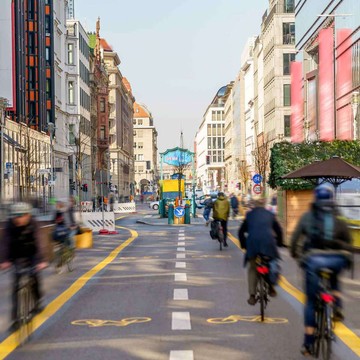
Jul 31, 2024 • 1h 42min
Net Zero Cities: Crafting a Generative Urban Future with Georgia Cameron of Dark Matter Labs
Georgia Cameron, a policy strategist at Dark Matter Labs with a background in urban planning and regenerative economics, discusses reimagining urban living to foster sustainability and community pride. She highlights the Net Zero Cities initiative, aiming for climate neutrality by 2030 while addressing societal challenges. The conversation covers innovative urban designs that promote accessibility, civic engagement, and agricultural integration, emphasizing collaboration among cities to adopt life-enobling economic practices for a more equitable future.
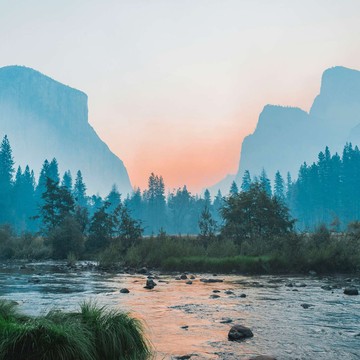
Jul 24, 2024 • 1h 11min
Earth and Soul: Reconnecting Amid Climate Chaos with Leah Rampy
Leah Rampy, author of Earth and Soul, discusses reconnecting with nature, weaving ancient wisdom into modern solutions for climate chaos. Topics include contemplative leadership, community responses to rat infestations, grief exploration using the Mobius Strip, transformative pathways, healing historical trauma, and reconnecting with the spiritual wisdom of trees.
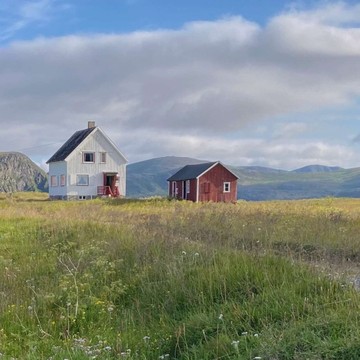
Jul 17, 2024 • 1h 28min
Creating Quantum Theatre: radical story-becoming to change the world with Jenifer Toksvig
Jenifer Toksvig, an expert in quantum theatre, explores transformative storytelling through the Copenhagen Interpretation. She discusses using fairy tales for reflection, personal connections through narratives, AI-generated images, and Skylark Island's quantum theatre experience. The podcast delves into responability in community engagement, transformative rituals, and challenging capitalist norms through inclusive and interactive storytelling.
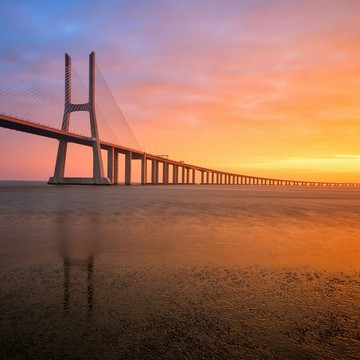
6 snips
Jul 10, 2024 • 1h 25min
The Tools we Need: Raising the Collaborative Commons with Resilience Strategist Michael Haupt
Resilience Strategist Michael Haupt shares a transformative vision for a collaborative future, emphasizing sustainable practices over greenwashing. Topics include: transformative visions, systemic change, legal personhood for natural entities, coordination for positive change, shifting to stewardship models, and shaping a positive future through storytelling and collaboration.

29 snips
Jul 3, 2024 • 1h 48min
How the System is Slaying Us - and What to Do About It: Getting Healthy in Toxic Times with Dr Jenny Goodman
Dr. Jenny Goodman, a doctor and author, discusses the health impacts of environmental degradation, including diseases in younger populations. Topics include toxins in food, water, and air, the need for restoring health, and healing the planet by improving soil, water, and air quality.
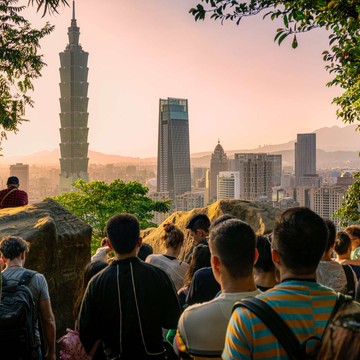
Jun 28, 2024 • 1h 3min
Election Special 4: What is Governance for and how can we shape genuine democracy - with Glen Weyl of the Plurality Institute
If the current electoral/governance system is not fit for purpose (and who could possibly imagine it was?) how can we lay the foundations for new ways of organising democracy, new ways of voting, new ideas of what governance is for and how it could work in the twenty-first century. How, in short, do we create space for future generations to be able to decide their own futures in ways that are not constrained by material or political strictures they've inherited from us?In this fourth election special, I have a profound conversation with Glen Weyl - economist, philosopher, film producer and visionary thought-leader for our time. We explore how we can break away from traditional governance structures and how spiritually acknowledging the complexity within each individual can pave the way for more inclusive, fluid, and efficient democratic systems. Glen is co-author with Audrey Tang of the ground-breaking book Plurality, which emerged partly Audrey's experiences in re-shaping the democracy in Taiwan towards connection, collaboration and - above all - peaceful resolutions of the many internal contradictions of that state. He introduces the concept of quadratic voting (of which he is the creator) as a significant innovation in this field. The conversation expands to the potential of technology in aiding governance reforms, and Glen shares insights from his work with the Plurality Institute and Radical Exchange. We also touch on the success of Taiwan’s innovative governance, influenced by Audrey Tang. Join us as we discuss creating experimental, adaptable governance systems aimed at ensuring peace and human flourishing in an ever-complex world. Glen currently works at Microsoft where he is the founder and research lead of the Microsoft Research Special Project the Plural Technology Collaboratory, though he was previously GeoPolitical advisor to the CTO. He also founded and serves on the board of the RadicalxChange Foundation the leading thing tank in the web 3 space, and is founder and chair of the Plurality Institute which coordinates an academic research network developing technology for cooperation across different disciplines. He's also senior advisor to the Getting-Plurality Research Network at the Harvard Edmond and Lily Saffra Centre for Ethics. He previously lead Web 3 technical strategy at Microsoft's Office of the CTO and taught economics at the Universities of Chicago, Yale, Princeton and Harvard. 00:00 Introduction to Polarisation and Complexity01:04 Welcome to the Accidental Gods Podcast01:31 The State of Global Democracy02:15 Quadratic Voting and Governance02:51 Defining Governance in the 21st Century03:13 The Role of Peace in Governance04:36 Harnessing Human Diversity for Progress08:42 Challenges to Current Democratic Systems11:11 Expanding the Polity and Legal Innovations11:58 Lessons from Historical Societies13:42 Imagining Future Governance Systems19:42 Locality and Pluri-locality in Governance26:39 Metaphors and Toolkits for Governance27:33 Concrete Voting Designs28:55 Dynamic Voting Systems30:48 Quadratic Voting Explained35:06 Liquid Democracy and Emotional Literacy37:24 Taiwan's Unique Political Landscape41:27 Audrey Tang's Impact and Philosophy47:06 Glenn's Diverse Background and Vision54:43 Concluding Thoughts and Future DirectionsGlen's websiteThe Plurality InstituteRadicalxChange FoundationQuadratic voting explainedPLURALITY - the book Audrey Tang on Twitter Trailer for film biopic about Audrey Tang: The Good Enough Ancestor Project LibertyQuadratic Voting - with Ruth Catlow in Episode #193
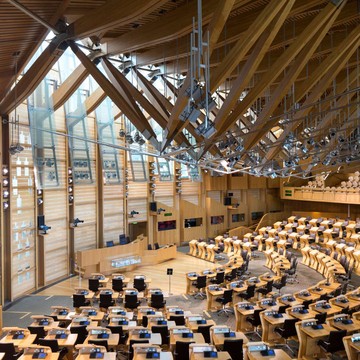
Jun 26, 2024 • 1h 25min
Beautiful Trouble - crafting a political Alternative - and an independent Scotland - with Indra Adnan and Pat Kane
The question of how we reshape democracy, walking the fine line between stagnation and populist rage - is the defining problem of our time - with a coherent strategy, we can shape anything. In its absence, we’re going to end up spinning in pointless circles, arguing about trivia while the world burns. We set this podcast up months ago, thinking we’d talk about the example Scotland sets for the UK and the rest of the world as a way *maybe) to shape democracy. And then Nicola Sturgeon stepped down and Scotland fell into the kind of turmoil I thought only impacted England. And then the turmoil in England sparked a general election. So now we’re talking about how we can use this moment to affect the digital, distributed democracy that we need with two of the smartest people in our eco-system - people who give their entire lives to thinking about this question: Indra Adnan and Pat Kane of The Alternative. This week's guests are Indra Adnan and Pat Kane. Indra is the author of The Politics of Waking up: Power and Possibility in the Fractal Age and Pat is a musician, writer, curator, consultant, activist and futurist and his substack is absolutely essential reading for anyone who wants to keep up to date with the ideas in our eco-system. The reason we're here, they're, Co-Initiators of The Alternative, which is a socio-political platform hosting #PlanetA: new ground to stand on for a flourishing future - and a daily blog and a forum, or perhaps a melting pot - for new ideas and new ways being. Acknowledging that the systems we are embedded in - media, economic, political - take our power away. The Alternative and Planet A ask us how we achieve the world we know deep down is possible.You have to experience The Alternative really to understand what it is to explore ideas at the leading edge of our emergent inter-becoming, to think through the lens of cosmo-localism, to hold new truths of who and how we are and to frame radical new political options in this age of cardboard cut-out politicians spouting ever more stale lines that were out of date in the 80s and are certainly not fit for purpose in the third decade of the twenty first century. So this conversation takes us deep into this territory. Recorded on the day after the EU elections, as France heads to the polls and the UK's general election descends ever further into infantile name-calling and political posturing that no longer even pretends to be the adults in the room, it was - and is - really refreshing to explore ideas of what's possible with people whose entire lives revolve around the concepts of emergent change. The Alternative Indra's book Indra in episode #124Pat's musicPat on Substack and at The NationalPat's Blog - The Play Ethic www.theplayethic.com Ecological Civilisation Manda's novel Any Human Power
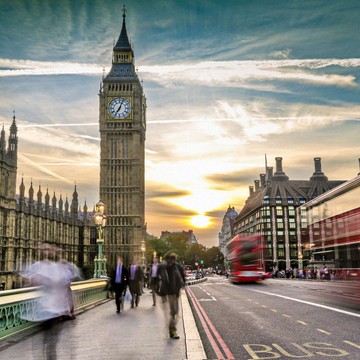
Jun 23, 2024 • 1h 6min
Election Special 3 - Labour party Manifesto - anything worthwhile? with Jeremy Gilbert
What are we being offered by the incoming Labour Government? What's good in their Manifesto (spoiler alert, not very much)? What's not good? What could be improved upon and how do we go about pushing them to a place where they actually do something useful that isn't simply a repeat of the same-old, same-old we've had for the past decade and a half? Our third Election Special Guest is Dr Jeremy Gilbert, professor of culture and political theory at the University of East London. He's the author of several books including Twenty First Century Socialism and Hegemony Now: How Wall Street and Big Tech won the world - and how we can win it back which was written with Alex Wiliams. Jeremy's been on the podcast before back in Episode #95 - and he's always my go-to person for insight into progressive thinking within the current Labour party, and for a broader, more political scientific view of where we're at. As chance would have it the Labour party published their manifesto about thirty six hours before we were due to record, so I took the chance to ask Jeremy what he thought of it: what's good, what could be better, what can we who care about people and planet do to help shift us onto a trajectory where we're not barrelling towards the edge of the biophysical cliff. It's not the most upbeat of conversations - because the answers to all three are 'not a lot, but joining a union is probably one of the most useful things you can do' - but it gave us a chance to look into a bit of the ideological, conceptual and pragmatic views of the current Labour party - and how we can shape things for a world that will work. Jeremy's WebsiteJeremy's BooksJeremy on TwitterJeremy in Episode #95Unite Community MembershipGreen Party ManifestoLiberal Democrat ManifestoLabour Party ManifestoCompass 'Win As One' vote swapping siteManda's novel - Any Human Power
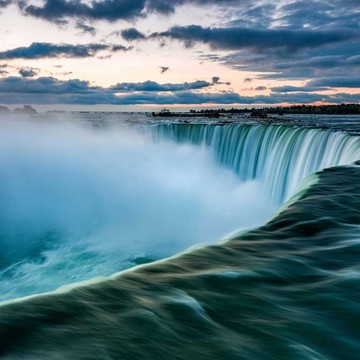
Jun 19, 2024 • 1h 6min
Taking back the Power: Weaning ourselves off fossil fuels and onto the good stuff with Howard Johns of OneZero
Today we're blowing open a route towards energy security, reduced carbon footprint and saving money - all in the way we make, distribute and use power. If each of us could minimise our own power use, we'd be a step on the way to reducing our overall carbon footprint: more, we'd be changing the ways we think of ourselves as separate from the web of life. This week's guest is long time friend of the podcast Howard Johns. Howard is an activist, author, and serial entrepreneur in the field of energy generation - of how we power our lives, keep the lights on and keep ourselves warm. Howard is now CEO of OneZero energy, a team of energy experts and digital nerds with a shared passion for getting homes off fossil fuels. One of the biggest climate actions anyone can take is to retrofit their home with four components: Solar panels, batteries, heat pumps and insulation The combination of these makes homes more comfortable, but more importantly, it saves significant amounts of money and massively reduces the carbon footprint - weaning us off fossil fuels. Howard himself has founded and led an award winning solar business, a pioneering community-owned energy company, and written a guide book to help others to do the same. He's given a TED Talk, occupied a coal mine and campaigned on energy and climate issues from inside parliament and atop treehouses, and until recently ran a large fleet of solar projects across the EU and UK.One Zero https://www.onezero.energy/Howard's website: https://www.howardjohns.net/Howard's book: https://uk.bookshop.org/p/books/energy-revolution-your-guide-to-repowering-the-energy-system-howard-johns/706009AG Episode 89https://accidentalgods.life/power-to-the-people/Indenture Hemp Insulation https://www.indinature.co/Homely Heat Pump Controllers https://www.homelyenergy.com/Any Human Power (Manda's book) https://linktr.ee/anyhumanpower
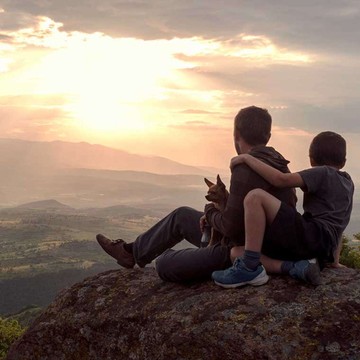
Jun 12, 2024 • 59min
The Jay, The Beech and The Limpetshell with author Richard Smyth
Our guest this week is Richard Smyth, author, crossword designer, cartoonist - and father of two young children Richard writes features, reviews and comment pieces for publications including The Guardian, The Times LiterarySupplement, The New Statesman, and New Scientist. His crosswords – both cryptic and quiz – appear regularly in New Scientist, History Today, and BBC Wildlife. He's part of the team that sets questions for BBC Mastermind, and he's a cartoonist: Private Eye, New Humanist and Claims magazines have all featured his work. He's the author of five non-fiction books of which the latest is The Jay, the Beech and the Limpetshell which is one of those captivating works that is both memoir and eulogy of a dying world. It brings together Richard's passionate love of the natural world with his care for his two young children. It's a captivating read that shuttles back and forth along the time lines, weaving Twitter comments from 'Average Dad' with items from the memoirs of old Victorian naturalists who tasted bird's eggs and considerations of how we help the generations that come after us to fall in love with a world that is going to be so, so different from when we were young - however old you are now, whatever your memories. So this is one or our more reflective, peaceful, contemplative podcasts, a paean to the worlds of our youth and a hope for the future. Enjoy!Richard's Website Richards books at Hive


